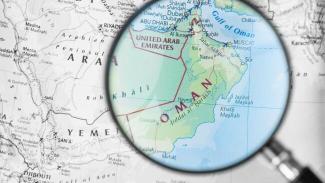
Taxes are one of the primary sources of revenue for the Oman government. This tax is applied to a company regardless of the owner's nationality or residential status.
The government of Oman is trying to focus more on revenue from non-oil sources, and corporate tax is one of the significant sources of income.
Concentrating on the welfare and development of the country, it has brought some changes in the Oman Tax Law, which gives more emphasis on
- Improving the tax administration,
- Increasing the revenue from taxes,
- Helping businesses to grow more.
If you are interested in a company formation in Oman, then an understanding of the Oman Tax Law, especially the Corporate Tax law and Withholding Taxes, would be very crucial for you.
Let’s see how we can file taxes under the Omani tax law.
Filing of Corporate Taxes
According to Omani law, all taxpayers are required to submit two returns for the relevant tax year to the General Secretariat for Taxes on the specified forms:
1. Provisional Return
There are two stages of corporate tax filing in Oman. The first is a Provisional Return, which needs to be submitted within the three months of the tax year. In this, the establishment mentions the taxable income for an accounting year and the tax value, which is self-assessed by the establishment.
The necessary payments are to be made at the office of the Secretariat General for Taxation. You can also submit the payments via any bank conducting its operations in the Sultanate. The taxes are based on their activity detail returns, provisional returns, annual returns, and the company's final account.
2. Annual Return
This form should be submitted within the last six months of the tax year. In this form, the establishment states its yearly income and the tax due according to the self-assessment.
A licensed auditor would accompany the audited documents. There are two types of annual returns for setting up a company in Oman:
- Institutions with a maximum capital amount of OMR20,000 for which no audited accounts are expected
- Institutions with a capital amount of more than OMR20,000 for which the final audited accounts are required to be attached with the return
The necessary payments are to be made at the office of the Secretariat General for Taxation or via any bank conducting its operations in the Sultanate, and all the taxes are based on their Activity detail returns, Provisional returns, Annual returns and the final account for the company registration in Oman.
If you fail to submit any of the above returns within their respective time limits, the law permits the Secretary-General of Taxation to enforce a fine up to OMR2000. A penalty may also be imposed if the actual income is kept hidden from the final return.
Changes to the Corporate Tax
The fundamental changes are as follows:
- There is a 3% increase in the tax rate (from 21% to 15%)
- The threshold for exemption, which was initially at OMR30,000, which is approximately $78,000, has been removed.
- The payments of any interest or dividends made to non-residents are now subject to Withholding Tax (WHT)
- Interest and dividend payments made to non-residents are subject to withholding tax (WHT)
- Any payments for which are availed by the non-residents are subjected to 1-% Withholding Tax.
- The exemption of the Withholding Tax on any payments made by the ministries and other government institutions has now been eliminated, and the relevant institutions are now obligated to deduct the WHT tax on the payments made.
- The tax exemptions have now been limited to the manufacturing sector for five years, which can’t be renewed.
- The self-assessment basis of tax filings has been introduced to increase the accuracy and precision of tax filings.
- In line with the banking income streams, provisions for the taxation of Islamic financial transactions were included.
- Changes such as the WHT tax provisions would be implemented immediately from the date the decree was published in the Government Gazette.
Corporate - Taxes on Corporate Income
The income tax rate is 15% for companies in Oman except for Omani proprietorships (‘establishments’) and limited liability companies (LLCs) that fulfil the conditions of small and medium enterprises (SMEs).
For Omani proprietorships and LLCs must meet the following requirements:
- SME taxpayers have to file for 3% income tax returns.
- The average employee number must be at most 15.
- Gross income does not exceed OMR 100000 for any tax year.
- Registered capital doesn’t exceed 50000 OMR during the beginning of the tax year.
- Taxpayer activities do not include air/sea transport, extraction of natural resources, banking, insurance, financial services, public utility concessions, or other activities to be decided by the Minister of Finance after approval by the Council of Ministers.
These are some of the essential changes an entrepreneur needs to know before filing taxes for their company. Filing taxes to register a company in Oman is a significant activity that affects the workings of the business.
How Can We Help?
A small mistake while filing your taxes can cause massive problems, hinder the growth of the business, and even lead to the company's decline.
Thus, let the professionals do the tax filing for your business as it would free up your time, which you can devote to the company's growth.
We at Business Setup Worldwide provide services regarding Oman taxes and various other services relating to Visa and Corporate Secretaries, which can help you grow your business. Contact us for any help or clarification to open a company in Oman.
1. What are the required documents for corporate tax filing in Oman?
Commonly required documents include financial statements, profit and loss statements, balance sheets, and supporting documentation for deductions or exemptions claimed.
2. When is the deadline for filing corporate taxes in Oman?
The deadline for filing corporate taxes in Oman may vary, but it is generally due within a specific period after the end of the financial year. Ensure compliance with the latest deadlines set by the tax authorities.






























